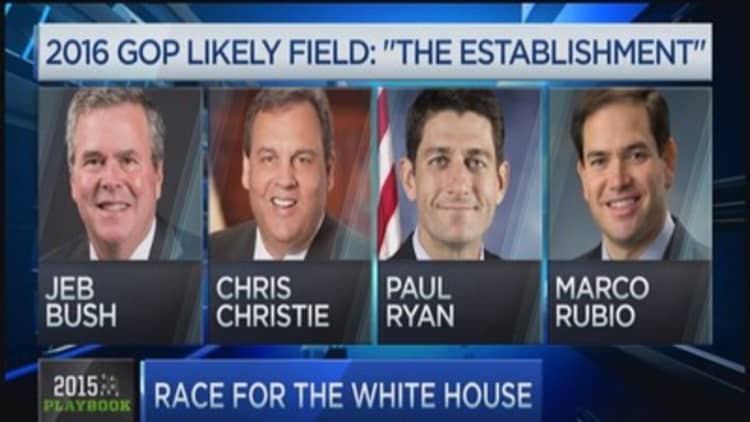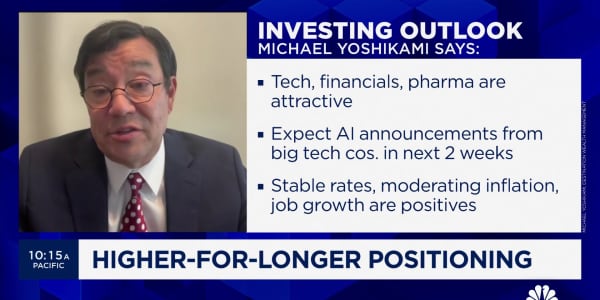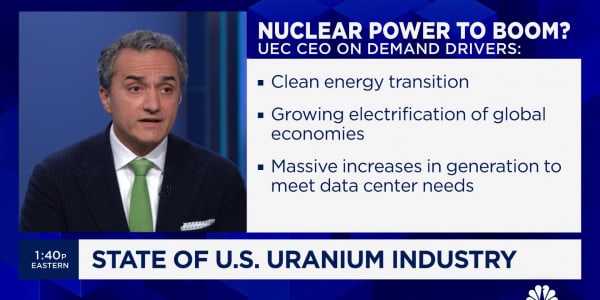Ted Cruz made no mistake in highlighting his opposition to a set of educational standards known as Common Core in his first presidential campaign speech.
"Instead of a federal government that seeks to dictate school curriculum through Common Core," he said to applause from the Liberty University crowd on March 23, "imagine repealing every word of Common Core."
Formally known as the Common Core State Standards, the once low-key, bipartisan effort to improve math and literacy education has quickly transformed into a major issue for many conservatives like Cruz, now a Republican U.S. senator from Texas, as they believe it's just another example of government overreach.
It's also a way for Cruz and other politicians likely to vie for the Republican Party nomination—including Rand Paul, Chris Christie, Bobby Jindal and Scott Walker—to differentiate themselves from potential front-runner Jeb Bush. The former Florida governor is a long-time Common Core supporter, a topic detractors could seek to tie to his establishment credentials and political moderation.
That combination of factors has virtually assured that Common Core will be an important topic of debate ahead of voting in November 2016.
"It will be a major issue because of its symbolic importance," said Tom Loveless, who researches education policy as a fellow at the Brookings Institution, a politically centrist think tank. "It's red meat for the kinds of conservative activists that a number of the contenders on the Republican side want to appeal to."
From bipartisan to blow up
Read MoreCompanies cash in on Common Core despite controversy
Until a few years ago, Common Core seemed like a benign push to make sure American public school students were competitive in English and math. Shaped by Democratic and Republican governors and education leaders, the benchmarks were adopted voluntarily in 45 states and the District of Columbia.
But Common Core has fast become controversial. Conservatives pundits like Glenn Beck and Michelle Malkin helped spread the notion of a Washington takeover of schools after some federal funding was linked to Common Core.
On the left, teachers unions that once backed Common Core expressed concerns on its recent rollout, worried that it added to overtesting of students and unfair evaluations of instructors.
Primary action
Attention to Common Core will be most visible during the presidential primaries, according to experts.
The key to that is Bush, a longtime supporter of improving educational standards in his time as Florida governor from 1999 to 2007.
As conservative opposition to Common Core has grown, Bush has been forced to defend his stance. "Raising expectations and having accurate assessments of where kids are is essential for success, and I'm not going to back down on that," Bush said during a congressional fundraiser in Iowa in March, according toThe Associated Press.
That position has put him at odds with most other likely opponents.
Take Jindal, the Louisiana governor, for example. After initially supporting the standards, Jindal sued the Obama administration in August over Common Core, claiming that the federal grants to states related to the Race to the Top program were unconstitutional because they forced states to adopt the standards. (Program grants were for general standards improvement, although much of the money distributed was related to Common Core.)
Like Jindal, several other big names initially supported Common Core—or gave it tacit approval—but have now turned against the standards or backed away from them. Examples include Wisconsin Gov. Walker, New Jersey Gov. Christie and former Arkansas Gov. Mike Huckabee.
Besides Cruz, other likely candidates who are against Common Core include Kentucky Sen. Paul, Florida Sen. Marco Rubio and former Texas Gov. Rick Perry.
"They're all sort of moving away from it," said Neal McCluskey, associate director of the Center for Educational Freedom at libertarian think tank Cato Institute. "I don't think you want to be called a flip-flopper, but even worse is to be associated with a policy that people really don't like."

The likely assault on Bush over Common Core fits a pattern in primaries.
"During presidential primaries, the candidates agree typically on 90 percent of the issues. So any time there are differences, it becomes a really important point that opponents will try to exploit," said Lara Brown, an expert on presidents and campaigns at George Washington University.
While most of the Common Core rhetoric has been among Republicans, there's a chance Democrats join the fray.
The presumed front-runner, former Secretary of State Hillary Clinton, has not given a firm position on Common Core. But if she did support it, a more liberal opponent could attack her on it, especially given opposition to the standards from teachers unions.
"If Clinton stumbled and suddenly you saw an Elizabeth Warren in the race, you would see all kinds of criticism over Common Core," explained Loveless of Brookings.
Massachusetts Sen. Warren has said she is not running. But she has a reputation for being more liberal than relatively centrist Clinton. A spokesman for Clinton—who has not yet declared that she's running—did not respond to a request for comment.
Loveless said liberal opposition to the standards hinges on overtesting and the perceptions of unfairly judging teacher performance.
Read More
While it's clear that Common Core will be a political fight, it may not last through the entire campaign.
Experts said the issue is likely to fade in prominence in the general election as domestic issues are typically more important in party primaries and education isn't truly a national issue given state control over schools.






